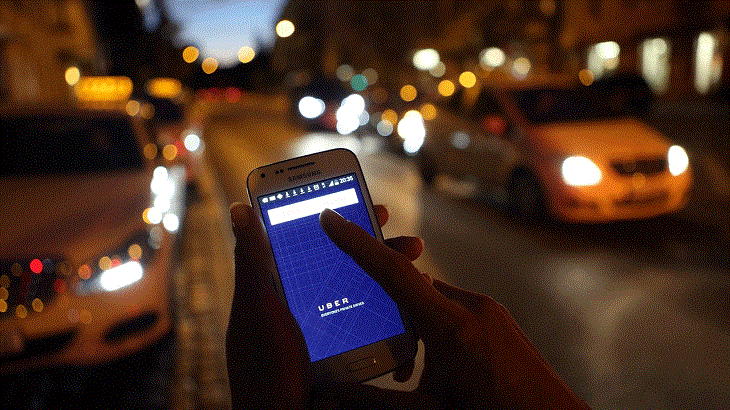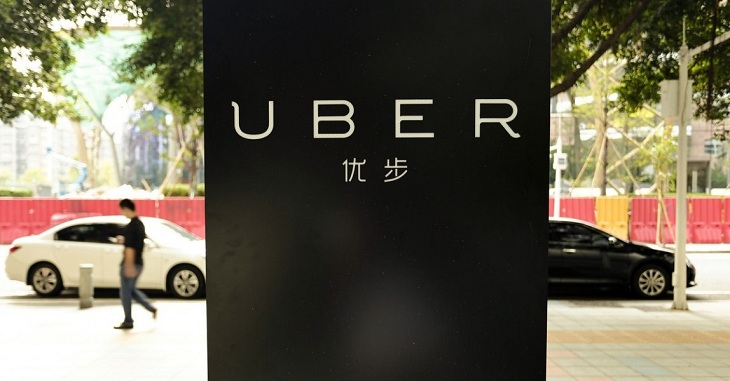
网约车正式合法,资料图
东南网澳大利亚站7月29日综合报道(本站记者彭寒)昨日,中国交通运输部联合公安部等七部门发布新规,正式明确网约车合法地位。
在公开征求意见10个月之后,《网络预约出租汽车经营服务管理暂行办法》(以下简称《办法》)正式发布,并将于11月起正式实施,全球最庞大的网约车市场将迎来新的历史篇章。
其中,《办法》明确规定,网约车不得以低于成本的价格运营扰乱正常市场秩序,并且应当依法纳税。以上两条规定或将带来搭乘网约车出行价格上涨。

网约车不得以低于成本价运营,资料图
中国:不得砸钱抢市场,应当依法纳税
许多人都记得网约车刚刚兴起的时候全民疯狂打车的情形,令人不敢相信的低价让许多人养成了网约车出行的习惯。而大量的补贴也成功吸引了许多的私家车主兼职甚至全职开网约车。
《办法》明确规定,网约车平台公司不得有为排挤竞争对手或者独占市场,以低于成本的价格运营扰乱正常市场秩序,同时地方政府也保留了实行政府指导价的权利。同时,《办法》也指出网约车平台公司应当依法纳税,为乘客购买乘运人责任险等相关保险,充分保障乘客权益。
“不让砸钱的话应该会涨价吧”一位来自中国UBER的工作人员向本站记者透露,“中国砸钱砸得太厉害了,全世界的UBER中国砸钱得最狠,都在抢市场。”
著名交通专家徐康明表示,在过去一两年中,网约车发展的最大问题就是形成了无序的市场环境和非理性消费。资本力量通过大量补贴来排挤对方抢占市场,这在国际上是从来没有的。新政出台后,资本大量烧钱的行为肯定要制止,这是回归理性市场秩序的前提。
不少打车平台的用户反应,部分平台在近几个月来已经开始涨价。一位济南地区的滴滴快车用户向本站记者表示,同样是下班回家的路程,相比几个月前的价格已经涨了近一半。在深圳地区全职开网约车的王先生告诉记者,综合补贴下降以及佣金等因素,自己的收入已经有下降的趋势了。

澳大利亚网约车合法化进程艰难,资料图
澳大利亚:网约车与政府的拉锯战
无独有偶,澳大利亚的网约车也正在进行艰难的合法化进程。目前,在澳大利亚共计8个州和领地中,包括新南威尔士州,首都领地,南澳,西澳等4个州或领地已经将以UBER为首的网约车公司合法化。
澳大利亚对于网约车合法化的讨论最早始于两年前,由于每个州或领地有着各自的法律和规定,因此合法化进程是分开进行的。在还没有合法化的州或领地中,维多利亚州有望在今年之内实现网约车合法化。
在各州网约车合法化进程中,被讨论和提及最多的问题莫过于像UBER一类网约车的诞生对出租车行业所造成的冲击。以西澳和新南威尔士州为例,州政府为网约车合法化付出了沉重的代价:5800名因为网约车的出现而导致生意受到影响甚至失业的出租车司机,将每人获得2万澳币的政府赔偿。
“我把它看作是UBER的胜利,我们可以合法挣钱了。”悉尼UBER司机David与记者聊起新州网约车合法化时表示,“目前还有一个问题是乘坐UBER 需不需要交GST(商品和服务消费税),这个对我们还是影响很大。”
目前,澳大利亚税务局和UBER正在澳大利亚联邦法院对薄公堂,就乘坐UBER是否应该缴纳GST展开辩论,如果UBER败诉,那么在澳大利亚的UBER乘客就将每单额外支付10%的GST。
China Legalizes Ride-Sharing Service, UBER Included
By Han, Southeast Net Australia, 29 July
New chapter of history revealed for UBER and its local rivals in China as State Department of Transport unveiled the new regulation yesterday, legalizing ride-sharing service in China.
After a 10-month public consult, the largest market of ride-sharing serviceacross the world --- nearly 400 million Chinese people are now traveling within their cities with ride-sharing service --- is to be regulated by the State and Provincial Government of China.
The new rule, to be formally implemented in November, has ruled out companies like DIDI and UBER from operating under cost to win a larger market share. The subsidy war last year where almost every ride-sharing service provider in China spent billions on both passengers and drivers, just to expand their business in the enormous market, has been called off by the government.
“What has been displayed in terms of pouring capital for market share has never been observed anywhere else in the world, which left the market orderless and filled with irrational consumption. ” Transport expert XuKangming Said.
“The new regulation paves the way back to order.”
Like the several states in Australia where UBER has been legalized, drivers in China are also required to undergo criminal behavior checks before they are eligible of driving passengers.
The new regulation has also enforced ride-sharing service providers to pay tax and purchase insurance for every passenger, which is widely considered as a sign of higher prices to travel with UBER and DIDI.
“Raising price is an option,” said Ms. Sun, staff of UBER China, “But UBER has not raised prices for now. ”

“It is the greatest pleasure for us to witness the history with all of you.” Said UBER China in its official statement. While most ride-sharing service providers are cautiously celebrating, cab drivers are certainly the loser of the new regulation.
Although we’ve seen several cab drivers strikes in different cities of China in the past year, compensation to these cab drivers are not mentioned or likely to happen, according to the source from DIDI.
“I’ve been thinking about switching to UBER for a while.” Said Wong, a taxi driver from Chengdu, Central City of China, “It’s about time.”
Chinese people have been debating over the whole year whether taxi plate fee is to blame in the first place, while the truth is UBER and its local rivals including DIDI have boosted employment of China by helping 13% of their full-time drivers out of then unemployment.
“Nobody is to blame. It’s a new industry and it’s enormous.” Said Lee, a UBER driver in Beijing.

